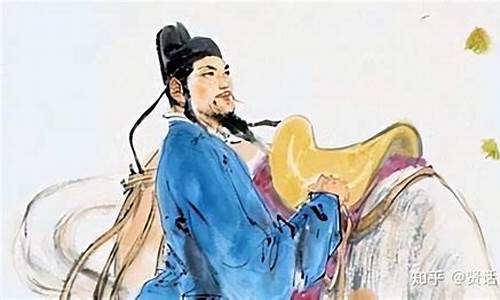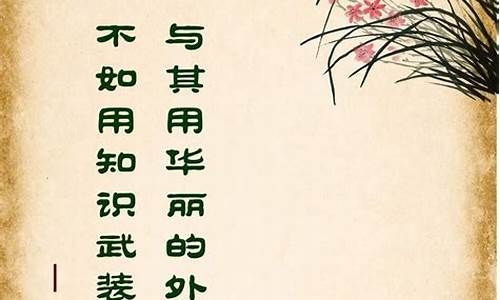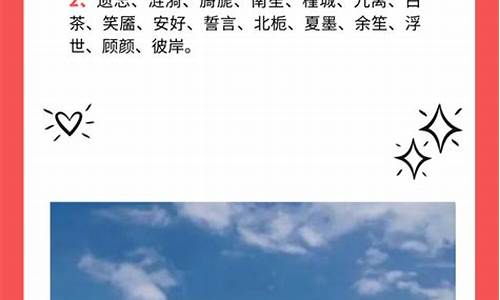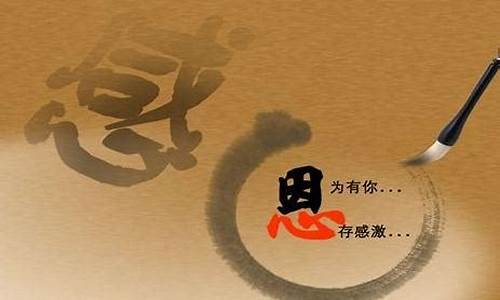您现在的位置是: 首页 > 句子大全 句子大全
主谓举例15个英语_主谓句子举例英语
tamoadmin 2024-09-16 人已围观
简介1.帮忙写20个主谓结构,主谓宾结构,主系表结构,主谓宾+间接宾语+直接宾语结构,主谓宾+宾补结构的英语句子2.10个主谓宾的句子。 要变成一般疑问句,否定句和陈述句。 回答者小生先谢谢某人啦。3.关于主谓英语句子主谓关系 主谓关系通俗点来讲就是什么东西干了什么 sb.do sth.例:马儿跑.(马儿主语,跑就是谓语) Horses run.(horses就是主语,run就是谓语)?动宾关系 动宾
1.帮忙写20个主谓结构,主谓宾结构,主系表结构,主谓宾+间接宾语+直接宾语结构,主谓宾+宾补结构的英语句子
2.10个主谓宾的句子。 要变成一般疑问句,否定句和陈述句。 回答者小生先谢谢某人啦。
3.关于主谓英语句子

主谓关系 主谓关系通俗点来讲就是什么东西干了什么 sb.do sth.例:马儿跑.(马儿主语,跑就是谓语) Horses run.(horses就是主语,run就是谓语)?
动宾关系 动宾关系意思是就是干了什么。
举例说明:
1、?Following a dog, the hunter eared.猎人出现了,前面走着一只狗。
2、 ?The hunter eared, followed by a dog.猎人出现了,后边跟着一只狗。
句1中,现在分词短语作状语,与句子主语形成逻辑上的主谓关系,即:The ?hunter followed a dog.。句2中,过去分词短语作状语,与句子主语存在逻辑上的动宾关系,即:The ?hunter was followed by a dog.
扩展资料Seen from space, the earth looks blue.从太空上看,地球是蔚蓝一片。
Seeing from space, we can see the earth blue.从太空,我们会看到地球是个蓝色星球。
句3中,句子主语the ?earth与过去分词seen之间存在逻辑上的动宾关系。
即:The ?earth is seen...。句4中句子主语we与现在分词Seeing有逻辑主谓关系,即:We see ?from space.
帮忙写20个主谓结构,主谓宾结构,主系表结构,主谓宾+间接宾语+直接宾语结构,主谓宾+宾补结构的英语句子
Subject(主语) + Verb (谓语) + Object (宾语)
这种句型中的动词一般为及物动词,所谓及物动词,就是这种动词后可以直接接宾语,其宾语通常由名词、代词、动词不定式、动名词或从句等来充当。
1) He took his bag and left.(名词) 他拿着书包离开了.
2) Li Lei always helps me when I he difficulties.(代词)当我遇到困难时,李雷总能给我帮助.
3) She plans to trel in the coming May Day.(不定式)她打算在即将到来的“五一”外出旅游.
4) I don’t know what I should do next.(从句)我不知道下一步该干什么.
注意:英语中的许多动词既是及物动词,又是不及物动词.
10个主谓宾的句子。 要变成一般疑问句,否定句和陈述句。 回答者小生先谢谢某人啦。
主谓结构,I study.
主谓宾:I like banana.
主系表:I am a student.
主谓双宾:I give a pencil to him.
主谓符合宾语:I make him hy.
1. 主语+谓语(不及物动词) [S + V]
如:The children are playing hily.
孩子们正在高兴地玩。
2. 主语+谓语(及物动词)+宾语 [S+V+O]
如:The Greens enjoy living in China.
格林一家喜欢住在中国。
3. 主语+谓语+表语 [S+V+P]
该句型谓语动词为连系动词。常见的系动词有:be(是); get(变得), become(成为), turn(变得), look(看起来), feel(感到), smell(闻起来), taste(尝起来), sound(听起来), seem(似乎) 等。如:
① He became a famous doctor.
他成为了一名著名的医生。
② The le pie tastes really delicious.
苹果派吃起来真是好吃。
4. 主语+谓语+间接宾语+直接宾语 [S+V+InO+DO]
这种句型中的及物动词后跟双宾语,既指人的间接宾语和指物的直接宾语。也可以把间接宾语放在直接宾语之后,但要加介词for或to。如:
① My aunt bought me a computer. = My aunt bought a computer for me. 我阿姨买给我一台电脑。
② I passed him the salt. = I passed the salt to him.
我把盐递给他。
5. 主语+谓语+宾语+宾语补足语 [S+V+O+OC]
如:We must keep our school clean.
我们必须保持我们的学校清洁。
1. Subject (主语) + Verb (谓语)
这种句型中的动词大多是不及物动词,这些动词常见的有:ear, apologize,arrive, come, die, disear, exist, fall, hen, rise,等等。如:
The students work very hard.学生们学习很努力。
She apologized to me again. 她再次向我道歉。
The accident hened yesterday evening.事故是昨天晚上发生的。
2. Subject (主语) + Link. V(系动词) + Predicate(表语)
这种句型中的系动词一般可分为下列两类:
(1)表示状态的连系动词。这些词有:be, look, seem, ear, smell, taste, sound, keep, remain, 等等。如:
Several players lay flat on the playground.几个队员平躺在操场上。
We should remain modest and prudent any time.我们在任何时候都应该保持谦虚谨慎。
This kind of food tastes terrible.这种食物吃起来很糟糕。
The picture looks more beautiful at a certain distance.这幅画在一定的距离看更漂亮一些。
(2)表示转变或结果的系动词。这些词有:become, get, grow, turn, go, come, prove,等等。如:
Spring comes. It is getting warmer and warmer.春天到了,天气变得越来越暖和。
Don't he the food. It has gone bad.不要吃那种食物,已经变质了。
The facts prove true.事实证明是正确的。
3. Subject(主语) + Verb (谓语) + Object (宾语)
这种句型中的动词应为及物动词或者可以后接宾语的动词短语。同时,句子中有时含有与宾语有关的状语。作宾语的成分常是:名词、代词、动词不定式、动名词或从句。如:
You can put the books in your bag.你可以把书放在书包里。
Farmers in our area grow lots of vegetables.我们这里的农民种很多种蔬菜。
She lost the chance to make her earance on the stage.她失去了在舞台上露面的机会。
I prefer to make web pages.我更喜欢做网页。
4. Subject(主语)+Verb(谓语)+ Indirect object(间接宾语)+Direct object (直接宾语)
这种句型中作间接宾语的常常指“人”,直接宾语常常指“物”。如:
Yesterday her father bought her a bicycle as a birthday present.昨天她父亲给她买了一辆自行车作为生日礼物。
The old man is telling the children stories in the Long March.老人正在给孩子们讲长征中的故事。
这种句型还可转换为其他两种句型:1)动词 + 宾语 + for sb.; 2)动词 + 宾语+to sb.。如:
Please show me your picture.
-Please show your picture to me.
请把你的画给我看一下。
I'll offer you a good chance as long as you don?t lose heart.
—I'll offer a good chance for you as long as you don't lose heart.
只要你不失去信心,我会给你提供机会的。
5. Subject(主语)+Verb (动词)+Object (宾语)+Complement(补语)
这种句型中的宾语+ 补语可统称为“复合宾语”。担任补语的常常是名词、形容词、副词、介词短语、分词、动词不定式等。如:
Keep the children quiet, please. 请让孩子们安静下来。
He painted the wall white. 他把墙漆成白色。
We found him an honest person.我们发现他是一个诚实的人。
His mother told him not to play on the street.他母亲告诉他不要在街上玩。
注意:动词he, make, let, see, hear, notice, feel, observe, watch等后面所接的动词不定式作宾补时,不带to。如:
The boss made him do the work all day.老板让他整天做那项工作。
1. 主语+ 不及物动词
例:It is raining heily.
My tooth aches.
2. 主语 + 及物动词 + 宾语
例:They enjoy the play.
I met John in the street yesterday.
3. 主语 + 系动词 + 表语
例:He is out.
Jenny is fine.
It looks like rain, soon.
4 主语 + 及物动词 + 双宾语
例:He bought her a watch.
The sun gives us light.
注意:双宾语一个指人(即间接宾语),另一个指物(即直接宾语)。一般间接宾语位于直接宾语的前面,有时它们也可交换位置,这是需要在间接宾语的前面加上介词to 或for 。
常见的双宾语结构:bring sb. sth (bring sth to sb). give sb. sth (give sth to sb.)
hand sb. sth (hand sth to sb.) lee sb. sth (lee sth.to sb)
lend sb. sth (lend sth to sb) pass sb sth (pass sth to sb)
return sb. sth (return sth to sb) send sb sth (send sth to sb)
show sb sth (show sth. to sb.) tell sb sth (tell sth to sb )
write sb sth (write sth to sb ) buy sb sth (buy sth for sb )
do sb sth (do sth for sb ) get sb sth (get sth for sb )
make sb. sth (make sth for sb) pay sb. sth (pay sth for sb)
sing sb sth (sing sth for sb )
5. 主语 + 及物动词 + 宾语 + 补足语
例:She found him a very clever student.
I make it a rule to get up early in the morning.
(S+V+P)
The bike is new.
The map is on the wall.
第二种 主语+不及物动词 (S+V)
He swims.
第三种 主语+及物动词+宾语 (S+V+O)
Children often sing this song.
第四种 主语+及物动词+间接宾语+直接宾语 (S+V+IO+DO)
She showed her friends all her pictures.
第五种 主语+及物动词+宾语+宾语补足语 (S+V+O+C)
关于主谓英语句子
1.
I am a boy.
I am not a boy.
Are you a boy?
2.
It is an le.
It isn't an le.
Is it an le?
3.
She is a girl.
She isn't a girl.
Is she a girl?
4.
Jim is kind.
Jim is not kind.
Is Jim kind?
5.
Susan is beautiful.
Susan is not beautiful.
Is Susan beautiful?
6.
He can swim.
He can' t swim.
Can he swim?
7.
I like rabbits.
I don' t like rabbits.
Do you like rabbits?
8.
She likes pink.
She doesn't like pink.
Does she like pink?
9.
You are a student.
You are not a student.
Are you a student?
10.
They are teachers.
They are not teachers.
Are they teachers?
呵呵 不知道你多大了 用的都是很简单的句子 而且我猜你们老师接下来会让你们对这些问题做肯定回答或是否定回答。
希望能够帮到你^_^
所有的英语句子,都是主谓结构组成的.
就算是Souds good. 这个句子也是省略了主语It.
I(主语)am(谓语) an English teacher.
She(主语)speaks(谓语)loudly.
一般情况下:
主语是名词,谓语是动词.









